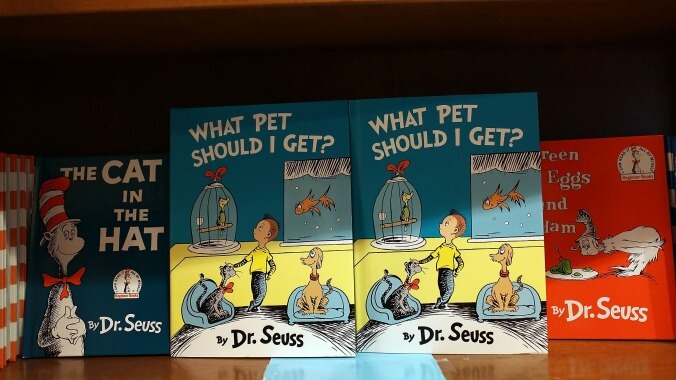6 Dr. Seuss books will no longer be published here, there, everywhere due to offensive imagery

Though some of his verses have been known to pack a political punch, prolific writer Theodor Seuss “Ted” Geisel—or Dr. Seuss—has definitely missed the mark more than once, employing racist caricatures packaged for young audiences. Of course, none of those instances would pass muster today (ideally, anyway) and on Tuesday, Dr. Seuss Enterprises attempted to fall in step with today’s audience by ceasing all publications of six titles due to their racist illustrations.
The company released the following statement announcing the decision:
“Today, on Dr. Seuss’s Birthday, Dr. Seuss Enterprises celebrates reading and also our mission of supporting all children and families with messages of hope, inspiration, inclusion, and friendship. We are committed to action. To that end, Dr. Seuss Enterprises, working with a panel of experts, including educators, reviewed our catalog of titles and made the decision last year to cease publication and licensing of the following titles: And To Think That I Saw It On Mulberry Street, If I Ran The Zoo, McElligot’s Pool, On Beyond Zebra!, Scrambled Eggs Super!, and The Cat’s Quizzer. These books portray people in ways that are hurtful and wrong. Ceasing sales of these books is only part of our commitment and our broader plan to ensure Dr. Seuss Enterprises’s catalog represents and supports all communities and families.”
The books came under fire because they included highly offensive depictions of certain characters: If I Ran The Zoo, the most popular out of all these titles, featured two African characters drawn to look like apes, donning a loincloth and not wearing a shirt or shoes. And Dr. Seuss’ first book under his pseudonym, To Think That I Saw It On Mulberry Street, features a character referred to as a “Chinaman who eats with sticks,” who is wearing a conical hat and has bright yellow skin.
As we previously mentioned, this is far from Dr. Seuss’ only instances with racism. Per Business Insider, Dr. Seuss began his career making ads that depicted Black people as savages and used exaggerated features on Asian characters. Over the years, a number of his political cartoons—specifically, anti-Japanese takes that were illustrated during WWII—have been pulled out of print due to his questionable caricatures.